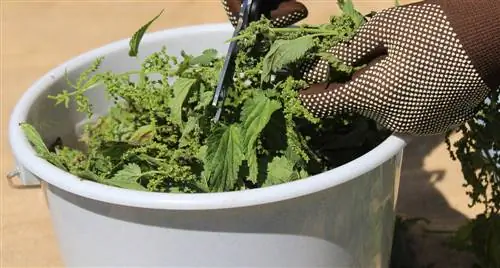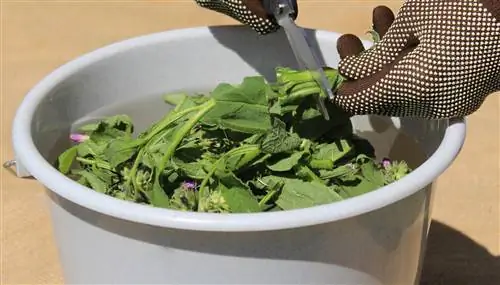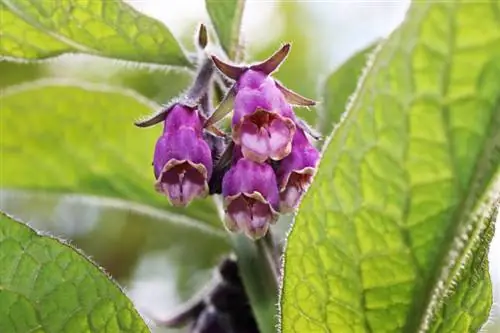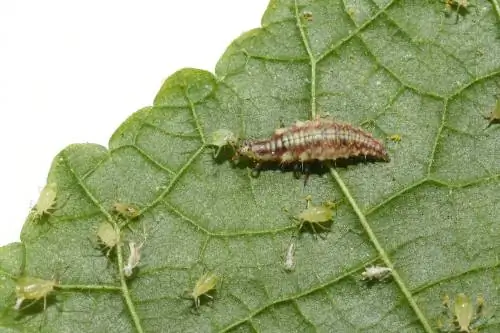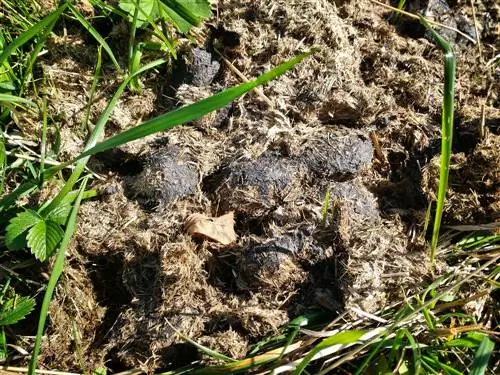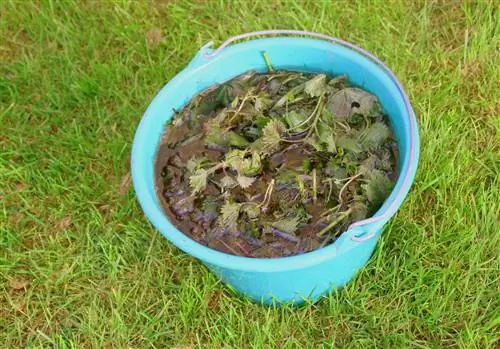- Author admin leonars@hobbygardeners.com.
- Public 2023-12-16 16:46.
- Last modified 2025-01-23 11:22.
If the plants really start to sprout in June, they need additional nutrients. Unfortunately, pests often attack the plants. Anyone who gardens in an ecologically friendly way will not be able to avoid plant waste during this time. You can find out how you can prepare and apply the product yourself in this article.
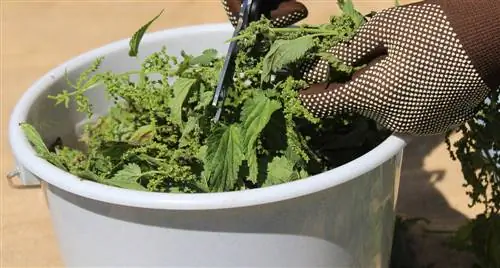
What are plant manures and what are they used for?
Plant manure is natural, home-made fertilizer made from fermented wild herbs such as nettle, comfrey or dandelion. They supply plants with nitrogen, nutrients and trace elements, strengthen their immune system and act against pests and fungal diseases.
What is special about manure?
First of all, plant manure serves to naturally improve the soil, because the fermentation of the plant material dissolves nitrogen, nutrients and trace elements. Not only plants such as tomatoes and cabbage, which like nitrogen-rich additional fertilization during the growing season, benefit from the fast-acting fertilizer.
In addition, the ingredients in the manure attract useful garden helpers such as earthworms. Depending on the herb used, it prevents fungal diseases and, when sprayed, kills pests such as aphids.
Which plants are suitable for producing plant manure?
| Plant | How it works |
|---|---|
| Comfrey | Because of its high potassium content, comfrey manure is very suitable as a fertilizer for root-forming plants such as potatoes, carrots, salsify and radishes. |
| Stinging Nettle | Stinging nettle manure is effective against aphids, spider mites and whiteflies. Excellent plant tonic. |
| elderberry leaves | Repels, poured into the aisles, voles. |
| Rhubarb | Sprayed on the ground has a repellent effect against snails. Also effective against aphids and leek moths. |
| Dandelions | Immune-boosting. Promotes the activity of microorganisms living in the soil. |
| Garlic and onion | Increases resistance to fungal diseases. Also serves to prevent late blight and brown rot. When poured onto the carrot greens, it prevents the carrot fly from laying eggs. |
| Wormwood | Helps against ants, lice and rust fungi. |
| Fern | Very effective against aphids. |
Basic recipe for plant manure
Ingredients
- 1 kg fresh or 200 g dried wild herbs
- 10 liters of water, preferably rainwater
- 2 handfuls of primary rock flour
Utensils
- Sufficiently large container made of plastic, clay or wood
- Cover in the form of a grid or lid
- Stick for stirring
Metal containers are unsuitable as the chemical reaction disrupts fermentation.
Manufacture
- Put roughly chopped plant material into the fermentation vessel.
- Pour the water over it.
- Sprinkle rock dust over the top to reduce the odor.
- Place in a warm, sunny place. Here the fermentation process begins within 48 hours. You can recognize this by the foam formation.
- As oxygen supply promotes fermentation, stir daily.
Fermentation is complete after about two weeks. The manure now has a dark color and no longer foams.
Use of plant manure
The manure is diluted in a ratio of 1:10 before spreading. Pour the fertilizer around the plants in the root zone, preferably in the early morning or evening. Avoid wetting the leaves as the high nutrient content could damage them.
To spray, dilute the plant manure in a ratio of 1:50 and apply the filtered agent with a sprayer, preferably on a rain-free but cloudy day.
Tip
Plant manure is also an excellent activator for the compost heap.

